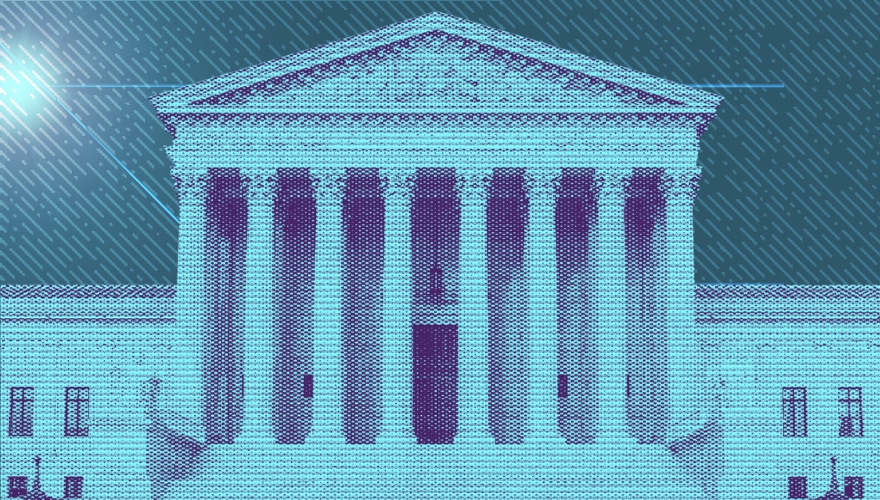The Secretaries of State in Maine and Colorado have conceded to the United States Supreme Court’s determination that former President Donald Trump should appear on the ballot during the election.
The high court ruled on March 4 that Colorado erred in its decision to remove Trump from the ballot and that the Fourteenth Amendment only grants Congress the ability to make that determination.
Maine Secretary of State Shenna Bellows announced in December that she had determined that Trump was not qualified to appear on her state’s ballot. She said the determination was part of her “sacred obligation” and argued the former president had violated the insurrection clause.
Following the Supreme Court’s ruling, Bellows withdrew her determination.
“I have reviewed the Anderson decision carefully. The U.S. Supreme Court has ruled that individual states lack authority to enforce Section Three of the Fourteenth Amendment with respect to federal offices,” she wrote in the press release. “Consistent with my oath and obligation to follow the law and the Constitution, and pursuant to the Anderson decision, I hereby withdraw my determination that Mr. Trump’s primary petition is invalid.”
Colorado Secretary of State Jean Griswold also acknowledged the Supreme Court’s decision.
“The United States Supreme Court has ruled that states do not have the authority to enforce Section 3 of the 14th Amendment for federal candidates,” she said in a brief statement released after the court’s decision. “In accordance with this decision, Donald Trump is an eligible candidate on Colorado’s 2024 Presidential Primary.”
During an appearance on MSNBC, Griswold said “it was good that the court issued a decision.”
“Colorandans and Americans deserve to know if Trump is a qualified candidate,” she continued. “My larger reaction is disappointment. I do believe that states should be able to – under our Constitution – to bar oath-breaking insurrectionists. And ultimately this decision … leaves open the door for Congress to act, to pass authorizing legislation.”
“But we know that Congress is a nearly nonfunctioning body,” Griswold said. “So ultimately it will be up to the American voters to save our democracy.”
Maine and Colorado will both hold their primary on March 5.
In a unanimous decision, the Supreme Court reversed the previous decision from the Colorado Supreme Court after finding the court had incorrectly interpreted the Fourteenth Amendment.
“Moreover, permitting state enforcement of Section 3 against federal officeholders and candidates would raise serious questions about the scope of that power,” the justices wrote in the opinion. “Any state enforcement of Section 3 against federal officeholders and candidates, though, would not derive from Section 5, which confers power only on ‘[t]he Congress.’ As a result, such state enforcement might be argued to sweep more broadly than congressional enforcement could under our precedents. But the notion that the Constitution grants the States freer rein than Congress to decide how Section 3 should be enforced with respect to federal offices is simply implausible.”

